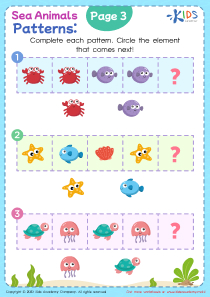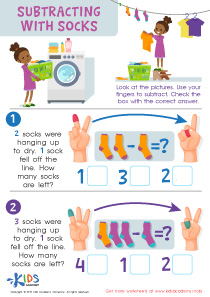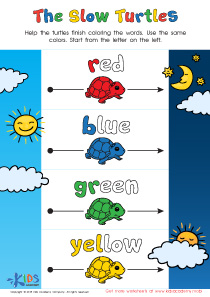Subtraction practice Easy Preschool Addition and Subtraction Word Problems Worksheets
12 filtered results
-
From - To
Enhance your preschooler's math skills with our "Subtraction Practice: Easy Preschool Addition and Subtraction Word Problems Worksheets." These engaging worksheets are designed to make learning fun and intuitive. Each activity features relatable, everyday scenarios to help children understand subtraction concepts through storytelling. With colorful illustrations and simple language, kids will eagerly solve problems and build their confidence in math. Perfect for classroom settings or at-home learning, our worksheets promote critical thinking and problem-solving skills. Explore the joy of subtraction while laying a solid foundation for future math success. Start today with our easy and enjoyable subtraction challenges for preschoolers!
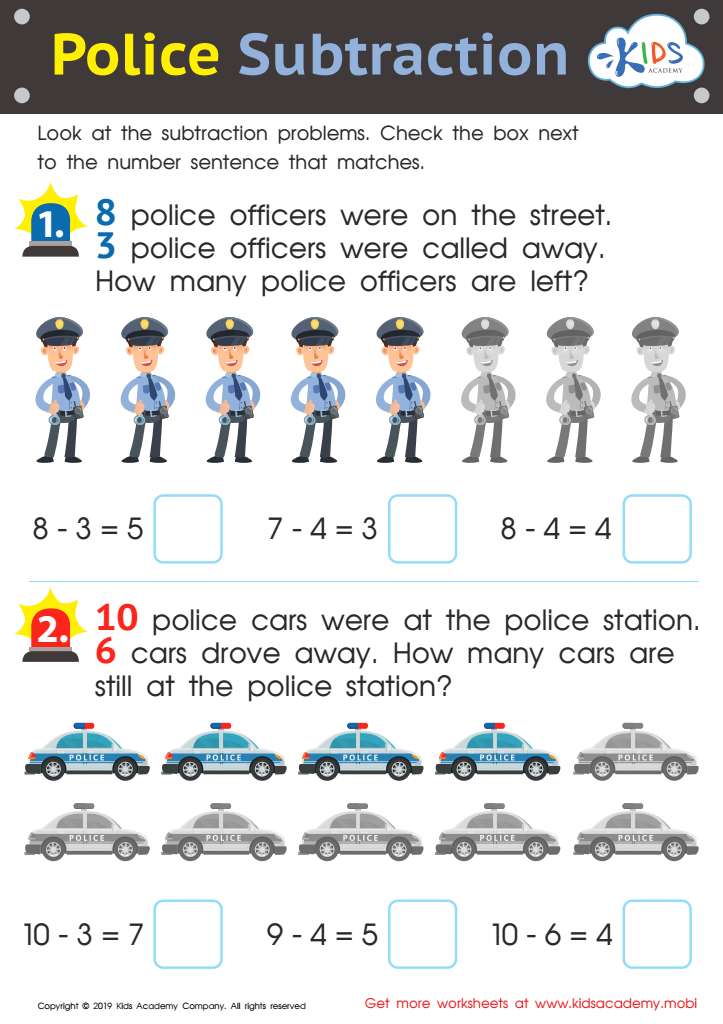

Police Subtraction Worksheet
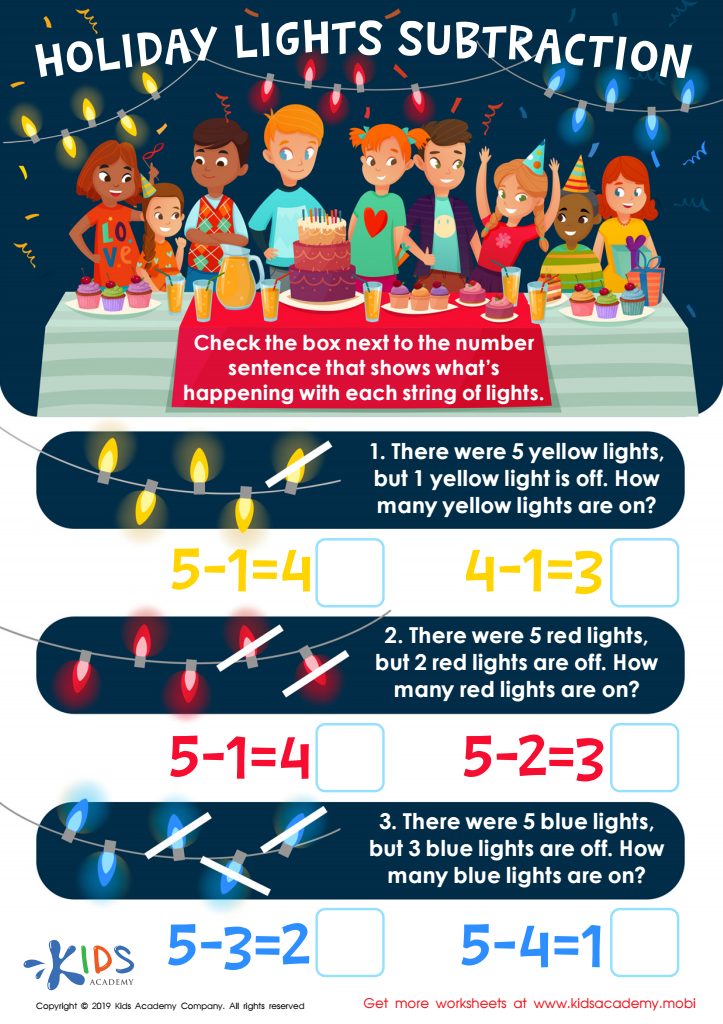

Holiday Lights Subtraction Worksheet
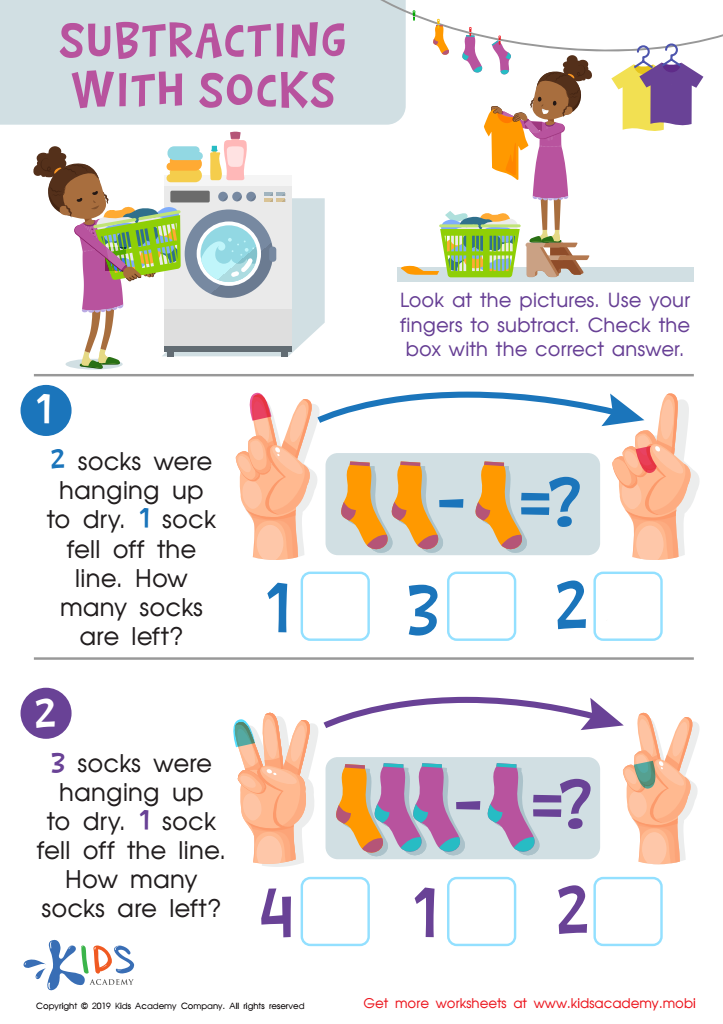

Subtracting Socks Worksheet
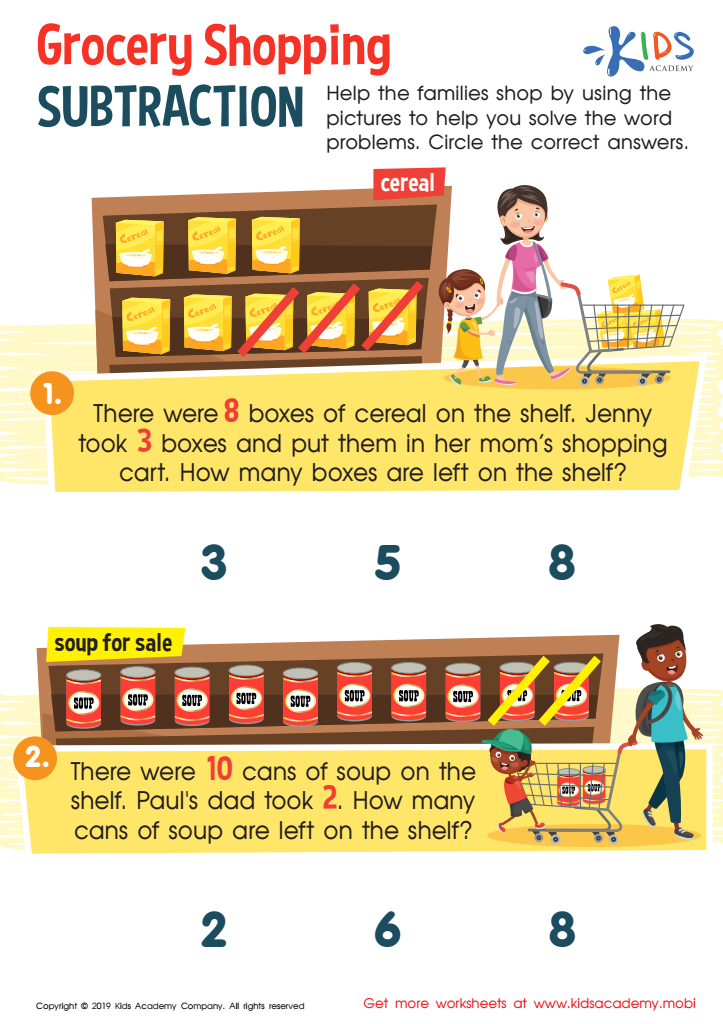

Grocery Shopping Subtraction Worksheet
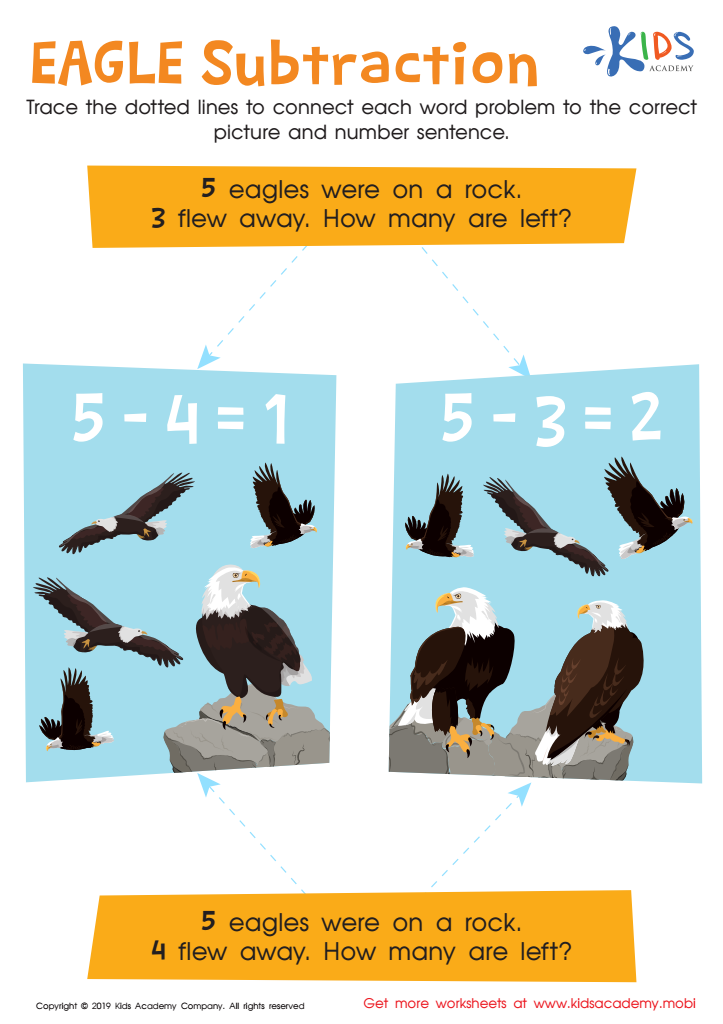

Eagle Subtraction Worksheet
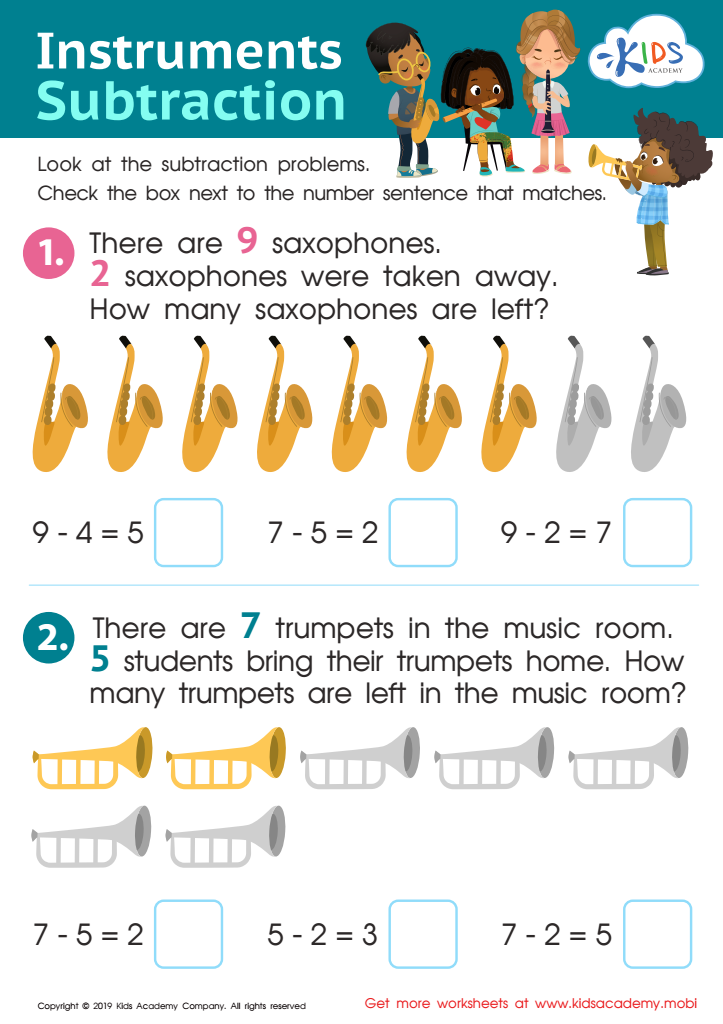

Instrument Subtraction Worksheet
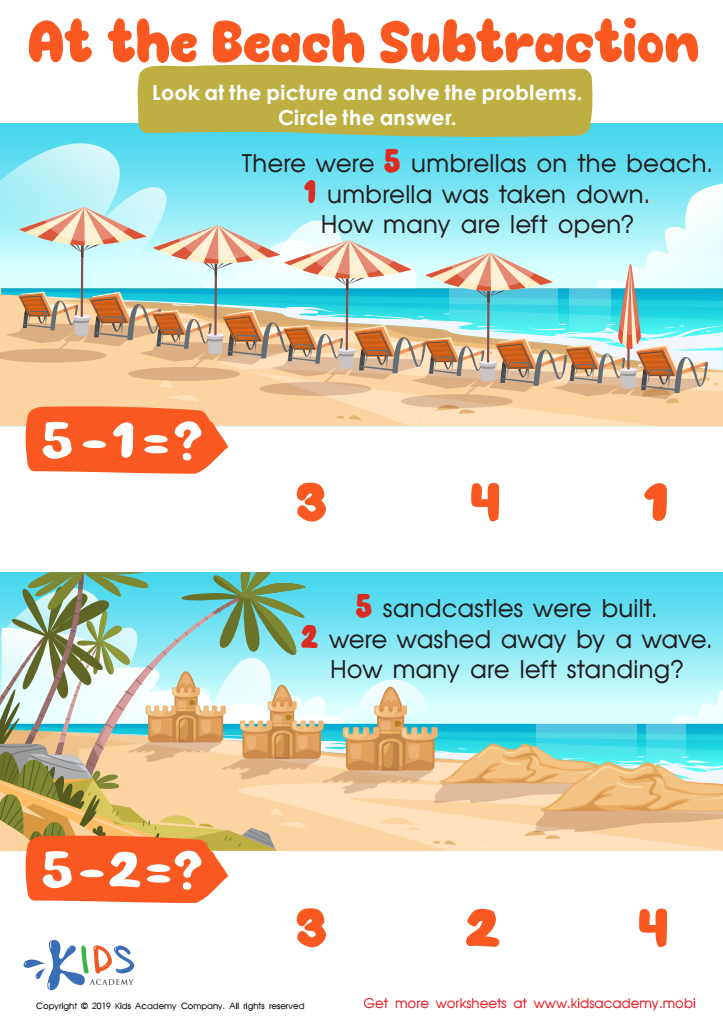

At the Beach Subtraction Worksheet
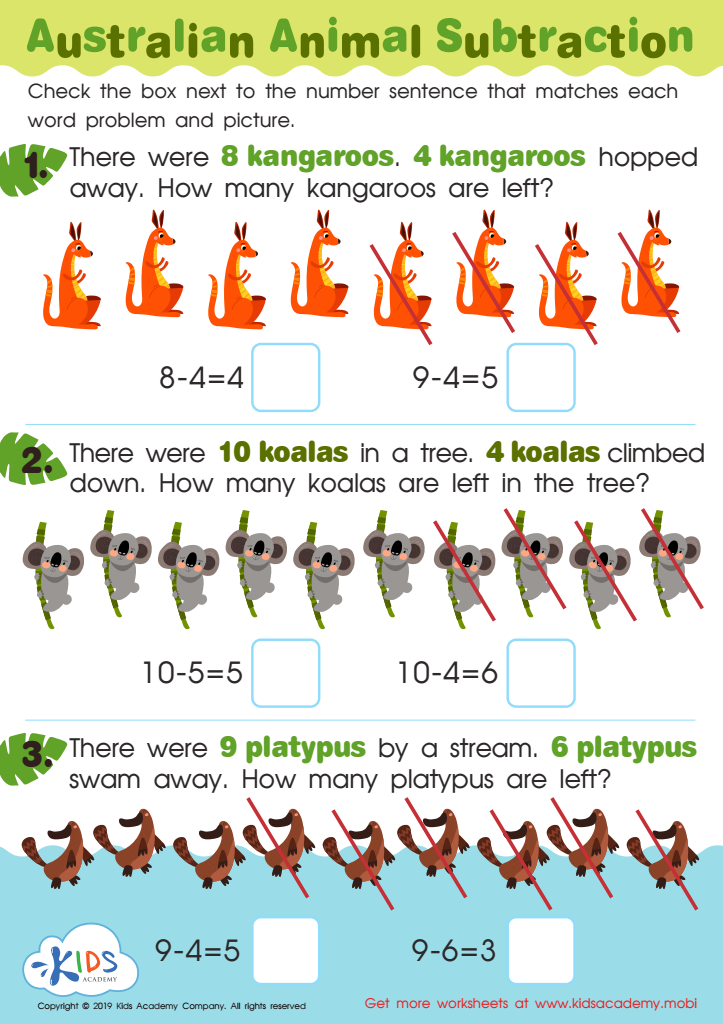

Australian Animal Subtraction Worksheet
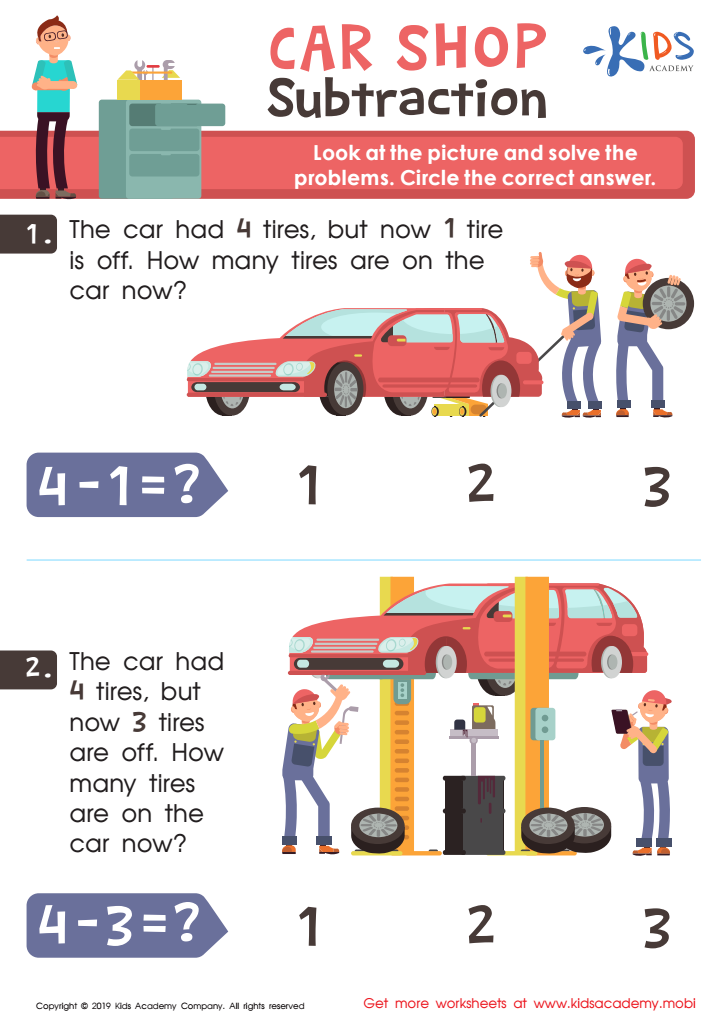

Car Shop Subtraction Worksheet
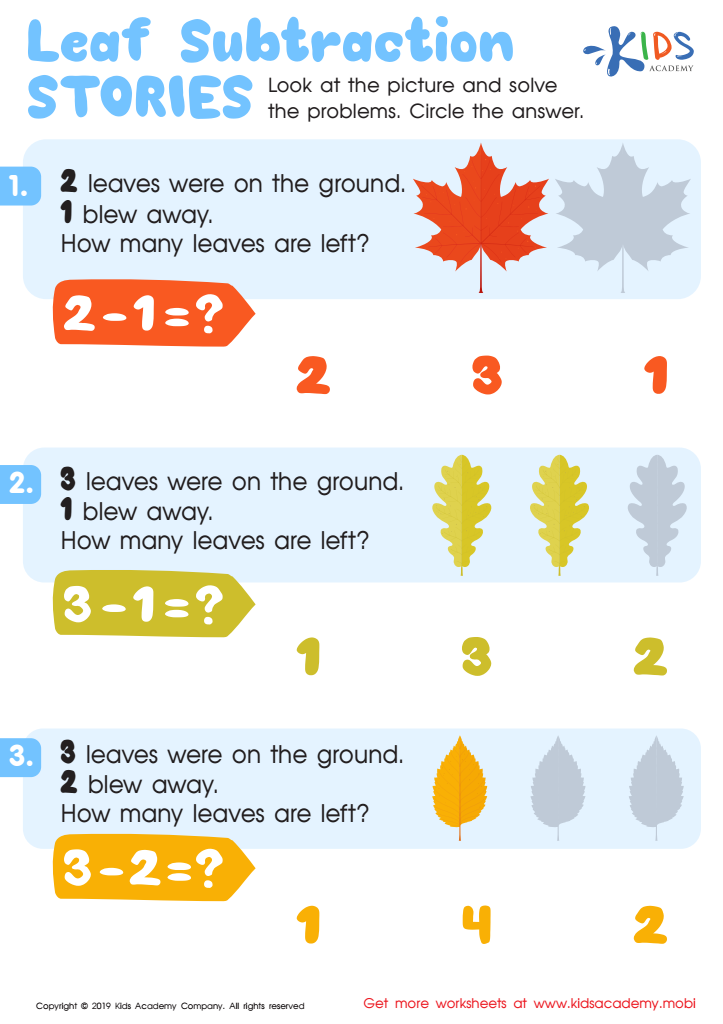

Leaf Subtraction Stories Worksheet
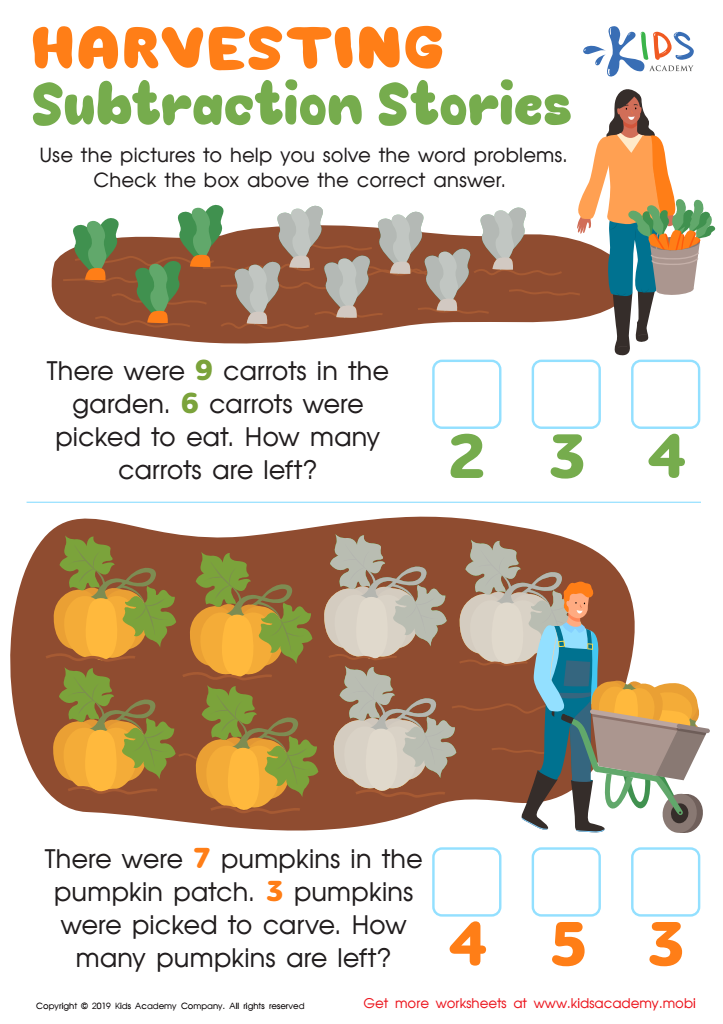

Harvesting Subtraction Stories Worksheet
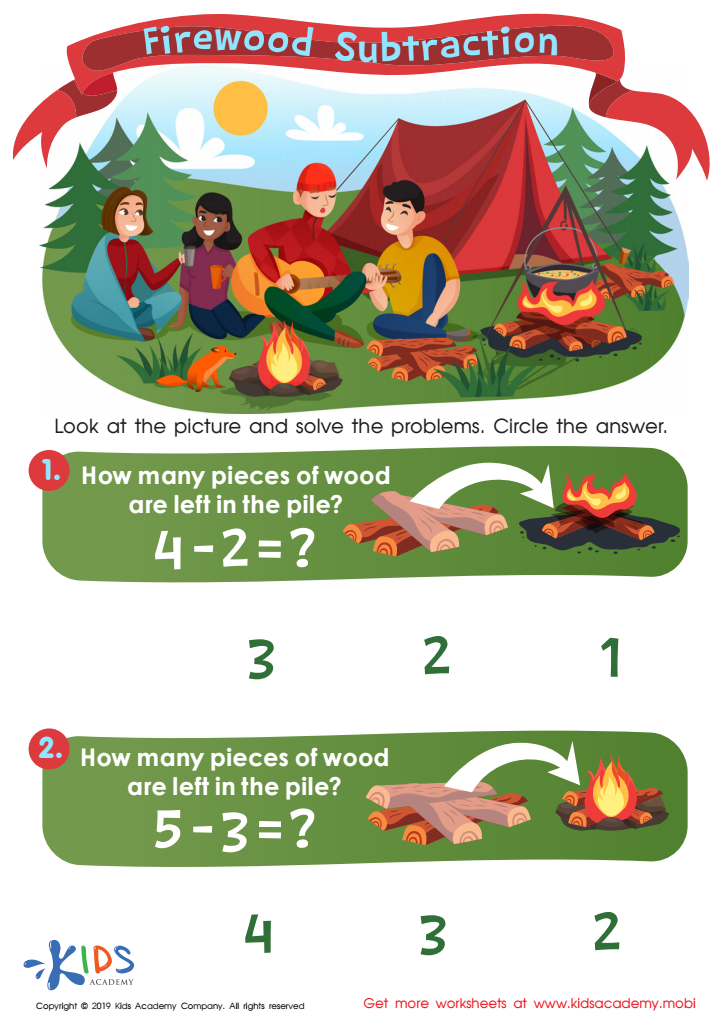

Firewood Subtraction Worksheet
Parents and teachers play a crucial role in laying a strong educational foundation for young learners, making it essential for them to care about tools like "Easy Preschool Addition and Subtraction Word Problems." Early mathematical skills, particularly in addition and subtraction, form the backbone of a child’s cognitive development, fostering problem-solving abilities and critical thinking.
Engaging with simple word problems encourages children to apply math in real-life contexts, promoting number sense and enhancing comprehension. These exercises enable young learners to visualize scenarios, bridging the gap between abstract numbers and tangible experiences. This approach not only makes learning enjoyable but also builds confidence as children grasp fundamental concepts.
Moreover, consistent practice in subtraction and addition ensures fluency, reducing future math anxiety. It prepares students for more complex concepts they will encounter in primary education. Additionally, involving parents and teachers in this learning process cultivates a supportive environment where children feel encouraged to explore and make mistakes.
As early math skills are strongly correlated with later academic success, focused attention on subtraction and addition practices is vital. By prioritizing these activities, caregivers can promote mathematical reasoning, ultimately setting the stage for a lifetime of curiosity and achievement in mathematics.
 Assign to My Students
Assign to My Students











